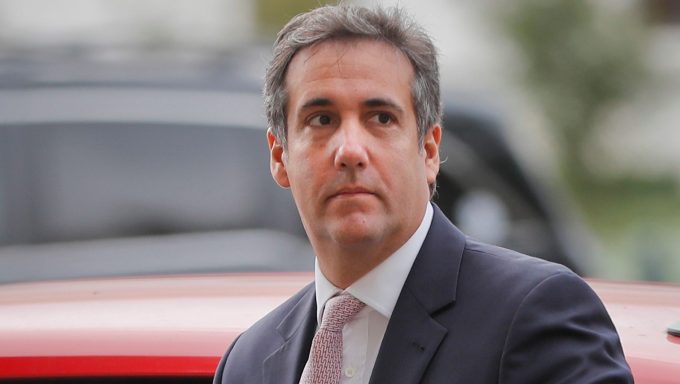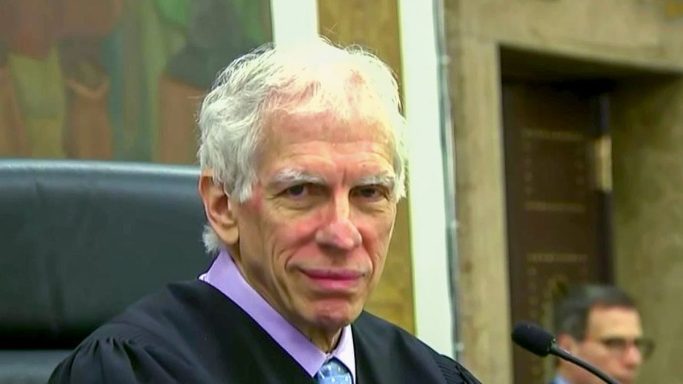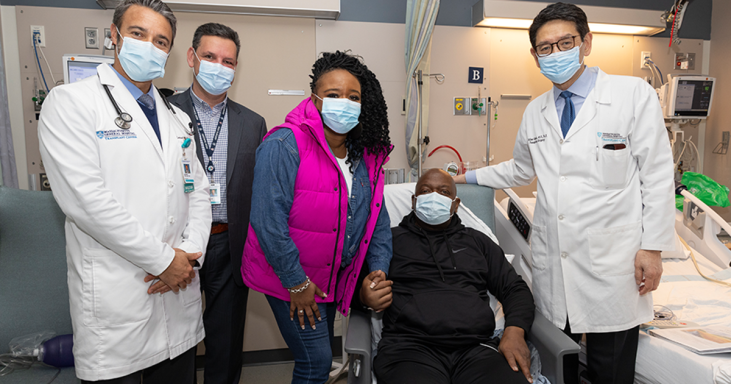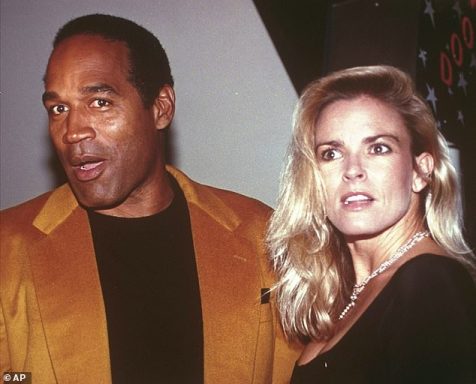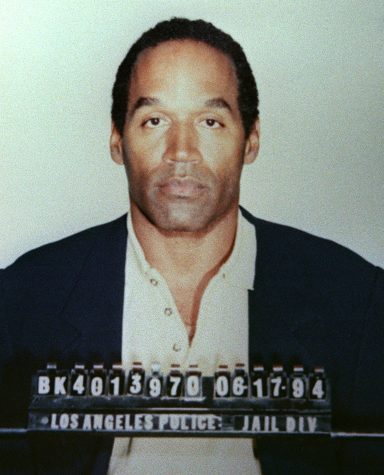NEWS
and
Perspective
NOW!
APL Q2, 2024
Pegasus: PBS/Frontline Video: Parts 1,2. Embedded Ref.
Remember Jamaal Khashoggi?
Meet Pegasus.
On 2 October 2018, Khashoggi entered the Saudi consulate in Istanbul to obtain documents related to his planned marriage but was never seen leaving. Amid news reports claiming that he had been killed and dismembered inside, an inspection of the consulate, by Saudi and Turkish officials, took place on 15 October.
Initially, the Saudi government denied the death, but following shifting explanations for Khashoggi's death, Saudi Arabia's attorney general eventually stated that the murder was premeditated. By 16 November 2018, the CIA had concluded that Mohammed bin Salman ordered Khashoggi's assassination. The murder has created tensions between the U.S. and Saudi Arabia, including calls for the U.S. to sever diplomatic ties with the kingdom.
*****
The Pegasus Crisis: A Harrowing Warning on State-Sponsored Surveillance
Edward Snowden's prophetic warnings about the perils of state-sponsored surveillance have manifested into a stark reality with the emergence of the Pegasus crisis. Recent revelations of the Israeli-made Pegasus spyware being deployed to hack the cellphones of journalists, lawyers, human rights activists, and political dissidents in Jordan underscore the grave implications of unchecked surveillance technologies for global human rights and privacy.
The deployment of Pegasus spyware by Israel’s NSO Group, as detailed by digital rights group Access Now, represents a flagrant abuse of surveillance capabilities. The revelation that at least 30 individuals, including prominent figures such as Human Rights Watch's deputy director for the region, Adam Coogle, were targeted raises alarming concerns about the erosion of fundamental freedoms and the chilling effect on dissent.
The insidious nature of Pegasus spyware lies in its ability to infiltrate mobile phones covertly, granting perpetrators unfettered access to sensitive information, communications, and even control of device functions such as microphones and cameras. Such intrusive surveillance not only violates individual privacy rights but also poses a grave threat to journalistic integrity, legal confidentiality, and the democratic process itself.
The complicity of governments in the proliferation of spyware technologies exacerbates the crisis. While NSO Group claims to sell its products exclusively to vetted intelligence and law enforcement agencies for use against terrorists and serious criminals, mounting evidence suggests widespread abuse of Pegasus for politically motivated surveillance. From Mexico to Thailand, Poland to Saudi Arabia, instances of abuse underscore the urgent need for robust oversight and accountability mechanisms to curb state-sponsored surveillance abuses.
The U.S. government's decision to blacklist NSO Group in response to mounting concerns over human rights abuses signifies a critical step in acknowledging the severity of the crisis. However, the pervasive nature of surveillance technologies demands a concerted global response to safeguard human rights, democratic principles, and the rule of law.
Recent revelations in Poland and Russia further illuminate the systemic nature of the Pegasus crisis, with evidence of illegal surveillance tactics deployed to manipulate electoral processes and intimidate dissenting voices. The Orwellian nightmare described by those targeted by Pegasus underscores the urgent need for stronger protections against invasive surveillance and clandestine cyber operations.
As digital rights experts warn of the dire consequences of unchecked surveillance technologies, it is incumbent upon governments, civil society, and the international community to take decisive action to rein in the proliferation of spyware and uphold the principles of privacy, freedom of expression, and democratic governance. The unchecked spread of cyberweapons like Pegasus poses an existential threat to human rights worldwide and demands a unified response to safeguard the future of democracy and individual liberties.
TL:DR GOOD NEWS? The Biden Administration and the FBI blacklisted NSO group (the Israel tech company who started this cyber hacking "Pegasus" calamity) from the get go. Smart thinking Mr. President! That's a win for American peace of mind and data privacy right there. 1-0
Trump's Tower
is Under Destruction!
[FEATURED]: Businessman, President, [FELON]
New York City, NY
Donald's Historic Verdict, The Fallout
In a groundbreaking legal decision, former President Donald Trump has been found guilty of 34 counts of falsifying business records. This verdict, unprecedented for a former U.S. president, carries significant implications for the American political landscape, particularly as Trump continues his campaign for the 2024 presidency.
The sentencing is set for July 11th, just days before the Republican National Convention, where Trump is anticipated to secure the nomination. The timing of this sentencing heightens the political stakes, as Trump remains a central figure within the GOP despite his legal challenges. However, the legal proceedings are far from over. Trump's legal team has already announced their intention to appeal the verdict, ensuring that the case will remain in the spotlight.
The appeals process is expected to be both lengthy and intricate. Trump's attorneys plan to challenge several aspects of the trial, including jury selection and evidentiary rulings. The appeal will first go to the Appellate Division, First Department in Manhattan and could potentially reach the New York Court of Appeals. Given the typical duration of such proceedings, it is improbable that the appeal will be resolved before the November election, meaning Trump will likely remain a convicted felon on the ballot.
Despite the seriousness of the charges, legal experts suggest that Trump is unlikely to face prison time. As a non-violent offender with no prior criminal record, probation or a conditional discharge seems more probable. However, Trump's persistent criticisms of the judicial process and his defiant rhetoric could influence the judge's sentencing decision.
One of the central figures in the case is Stormy Daniels, the porn actor who alleged she had a sexual encounter with Trump and received hush money to keep the story from influencing the 2016 election. This scandal has not only led to Trump's legal woes but also has potential ramifications for his political campaign, particularly among female voters. The allegations and subsequent trial may further alienate women voters, even within the Republican primary, potentially weakening his broad appeal.
Trump's legal team faces a significant challenge in the appeals process. Former prosecutors note that most appeals are denied, especially in high-profile cases managed by experienced judges like Juan Merchan. While the outcome of an appeal remains uncertain, it is clear that Trump's legal battles will continue to be a major focus in the months ahead.
Trump's legal troubles extend beyond the courtroom. His legal issues do not disqualify him from running for president, presenting voters with a unique dilemma. Despite his legal entanglements, Trump continues to command unwavering support from Republican leaders, indicating his enduring influence within the party. As he presses on with his campaign, Trump has framed himself as a victim of a "rigged trial," a narrative that could resonate with his base but may also deepen the political divide.
Let's be honest, this legal saga has intensified scrutiny on Trump's behavior and character, particularly among female voters. The Stormy Daniels case highlights issues of personal conduct and respect for women, factors that could significantly impact his standing among women in the electorate. This demographic is crucial not only in the general election but also in the primaries, where losing female support could weaken his chances of securing the nomination.
APL Q2
****
Medical Pioneer:
Richard SLAYMAN, a tribute.
****
Boston, Massachusetts
MAY 12 2024 - "Rick" Slayman, the 62-year-old man who made history as the first recipient of a genetically modified pig kidney transplant, has passed away nearly two months after undergoing the groundbreaking procedure at Massachusetts General Hospital, Boston, in March.
Slayman, who suffered from end-stage kidney disease, type 2 diabetes, and hypertension, had previously received a human kidney transplant in 2018, but it failed after five years, necessitating his return to dialysis.
The hospital confirmed Slayman's death on Sunday, expressing profound sadness and extending condolences to his family. However, they stated that there was no indication his death resulted from the transplant itself. Slayman's family acknowledged that the xenotransplant had granted them an additional seven weeks with their beloved family member, cherishing the memories created during this time. They shared that Slayman's primary motivation was to offer hope to the thousands awaiting life-saving transplants, and his optimism will continue to inspire others.
The pig kidney transplant, performed on March 16, marked a historic milestone in the field of xenotransplantation, the transplantation of living cells, tissues, or organs from one species to another. Slayman's operation was hailed as a significant breakthrough, as previous attempts at transplanting other organs from genetically modified pigs had failed, with recipients passing away within weeks due to rejection or other complications.
MGH expressed their gratitude for Slayman's trust and willingness to advance the field of xenotransplantation, describing him as "a beacon of hope for transplant patients worldwide." The hospital had confirmed that Slayman no longer required dialysis after the new organ was functioning well following the transplant.
The success of Slayman's transplant offered hope in addressing the critical organ shortage faced by over 100,000 individuals in the United States currently awaiting transplants, with kidneys being the most sought-after organs. Thousands of people lose their lives each year before receiving a transplant, underscoring the urgent need for innovative solutions like xenotransplantation.
While Slayman's passing is a setback, his pioneering spirit and the knowledge gained from this experience will undoubtedly pave the way for further advancements in this field, potentially saving countless lives in the future.
Researchers are actively working to refine the genetic engineering techniques used to modify the pig organs, aiming to reduce the risk of rejection and improve compatibility with human recipients. One promising approach involves using gene-editing tools like CRISPR to remove specific genes in pigs that could trigger an immune response in humans.
Additionally, scientists are exploring ways to grow human-compatible organs directly from genetically modified pig stem cells, potentially eliminating the need for full organ transplants altogether. This cutting-edge technique, known as xenogeneic organ bioengineering, could revolutionize the field by providing an unlimited supply of organs tailored to individual patients.
Furthermore, researchers are investigating the use of immunosuppressive drugs and other therapies to help the human body better accept xenotransplanted organs, reducing the risk of rejection and improving long-term outcomes.
As with any groundbreaking medical advancement, xenotransplantation raises ethical concerns that must be carefully addressed. These include potential risks of cross-species viral transmission, animal welfare issues, and the equitable distribution of these life-saving treatments.
Ongoing public discourse, ethical review boards, and strict regulatory oversight will be crucial in ensuring that xenotransplantation research proceeds responsibly and ethically, while maximizing its potential to alleviate the global organ shortage crisis.
While Slayman's passing is a tragic loss, his courageous participation in this pioneering procedure has paved the way for future breakthroughs that could save countless lives worldwide. The scientific community remains committed to building upon this foundation, driven by the hope and optimism embodied by individuals like Rick Slayman.
WE HONOR MR. SLAYMAN AND HIS GROUNDBREAKING CONTRIBUTION TO MEDICINE. Hopefully, one day, patients won't have to die on a waiting list for human tissue.
Do you remember?
We use to love these brands.
fEATURED: 90's food!
Join us...
on a very nineties stroll back up the shopping aisles of memory lane, down we go, thru the drive thru, shamelessly into bed with us, dropping crumbs all the way. Mhmm... Back in the day really was the best.
fIRST THINGS FIRST. CLOSE YOUR EYES... Imagine the Prom King of burger joints. "Fuddruckers Greatest" not only lived up to its name and claim; more importantly, it was affordable. Picture your first time in this place. You think to yourself, why is it so big? All this space for some hamburgers? Seems... excessive, no?
Okay, with slight trepidation, you approach this suspiciously nice counterperson. You get a double burger with cheese and bacon - they hand you a receipt. $8.99... alright... then next time you know you've regained consciousness... now carrying a (this is heavy) heavy tray with 2 massive cheeseburgers flanking a warm, over-sized, unadulterated bun... You're sweating. You stand in the lunchroom, disoriented, like on the first day at a new school. Then you realize... you have friends! They're called TOPPINGS... THERE THEY ARE! Hey!!!
YOU get to build your own creation... YOU Burger Goddess, YOU GOD OF ALL THINGS UNHOTDOG. Yes yes PILE ON BROTHAS AND SISTAS: Bacon, mushrooms, jalepenos, pepperoni, sauteed onions, hell-regular onions, GARLIC PICKLES!? Is that nacho cheese? Lord... When I tell you... It was such a magic place and the fact they're no longer open is just so sad I... wait yes they are open at many fine locations!?... BRB.
TDLR: EAT MORE CHICKEN!
2ND THINGS FIRST, we have Clearly Canadian, the sparkling water sensation that bubbled its way into our hearts in the glorious decade known as the NEON '90s. With its tantalizing flavors and chic glass bottles, Clearly Canadian was the drink of choice for anyone who fancied themselves a connoisseur of the finer things in life – or at least wanted to impress their friends at the school cafeteria.
NEXT, Next.. Miami Subs. If you didn't have one, time machines might still be invented, so, there's hope yet.
Seriously, who could forget the fast-food chain that brought a taste of tropical paradise to every corner of America? With its kitschy decor and iconic flamingo logo, Miami Subs was more than just a place to grab a bite – it was a cultural institution, a beacon of hope in a world filled with bland sandwiches and uninspired salads. It was where dreams came true and where waistlines went to die a deliciously flamboyant death. Ah, yes, those were the days when the shelves were adorned with brands that seemed to hold the key to eternal happiness – or at least a temporary escape from the mundane realities of adulting.
But let's not overlook Mystic, the fizzy elixir that promised to transport us to a realm of pure bliss with every sip. With its psychedelic packaging and mind-bending flavors, Mystic was the drink of choice for anyone looking to add a splash of excitement to their mundane existence. It was like drinking a rainbow, only without the pesky side effects of actually tasting like Skittles.
And then there's Orangina, the French import that took America by storm with its quirky advertising campaigns and tangy citrus flavor. It was like drinking sunshine in a bottle, only without the risk of getting a sunburn or attracting a swarm of bees. It was the perfect beverage for lazy summer afternoons spent lounging by the pool or pretending to do yard work while secretly binge-watching "The Golden Girls" eating a bucket of Roy Roger's... Not KFC, ROY ROGERS DAMN IT. Okay that felt good, continuing on.
And why is a red tootsie roll so rare? Mr. Owl, no one likes banana nor vanilla!
And who could forget Zima, the clear, malt-based beverage that became the unofficial joke of the '90s with its sleek packaging and refreshing taste, and... awkward marketing campaigns? It was like drinking liquid loser, only without the awkward memories of your middle school dance or that regrettable haircut you had in college. It was the beverage of choice for anyone looking to relive their awkward youth, the glory days of not getting girls, and just forget about their impending midlife crisis for a few fleeting moments.
So, as we bid adieu to these beloved brands of yesteryear, let us raise a glass – or a sandwich – to the memories they've given us and the laughs they've shared. And who knows – perhaps one day, these forgotten treasures will make a triumphant return, bringing a taste of the past back to the present for a whole new generation to enjoy. Until then, let's cherish the memories and keep the spirit of nostalgia alive in our hearts and our grocery lists. Cheers to the good times!
Legacies
Don't sleep on Pearl Moore
Unveiling the Hidden Heroes: Recognizing Pearl Moore as College Basketball's True Scoring Champion
As the hype surrounding March Madness reaches a crescendo, the spotlight invariably falls on the stars of the hardwood, with Iowa's Caitlin Clark emerging as a standout figure. However, amidst the fervor of modern-day basketball fandom, a long-forgotten tale of unparalleled scoring prowess resurfaces—a narrative buried beneath the annals of history, waiting to be unveiled.
Pearl Moore, a Black woman hailing from Francis Marion University in Florence, South Carolina, etched her name into the fabric of basketball greatness during the late 1970s. Playing predominantly in the shadow of the then-fledgling women's basketball landscape, Moore's remarkable feat of amassing 4,061 points over 135 games remains unparalleled in its magnitude. Yet, her remarkable achievements had languished in obscurity for over four decades, overshadowed by the passage of time and the evolving contours of collegiate athletics.
In an era devoid of the three-point line and amidst the absence of widespread recognition, Moore's scoring prowess transcended the limitations of the game. With unwavering determination and unparalleled skill, she navigated the challenges of her time, defying the odds to secure her rightful place in the pantheon of basketball legends.
As Caitlin Clark basks in the limelight of contemporary basketball stardom, it is imperative to acknowledge the historical significance of Moore's legacy. While Clark's achievements captivate the hearts and minds of modern-day fans, it is Moore's indomitable spirit and unwavering resilience that serve as a beacon of inspiration for generations to come.
In a poignant reflection on her journey to recognition, Moore aptly articulates the sentiment of receiving long-overdue acknowledgment. Despite the passage of time and the absence of accolades, Moore asserts, "the flowers have already been presented to me." Her words resonate as a testament to the enduring legacy of perseverance and resilience—a legacy that transcends the confines of time and circumstance.
The resurgence of Moore's story serves as a stark reminder of the importance of preserving the rich tapestry of sports history. In an age characterized by fleeting moments and transient fame, it is incumbent upon us to honor the trailblazers who paved the way for future generations. By shedding light on Moore's remarkable journey, we pay homage to the countless unsung heroes who have left an indelible mark on the game of basketball.
As debates rage on about the greatest of all time, let us not forget the giants upon whose shoulders we stand. Moore's enduring legacy stands as a testament to the transformative power of sport—a power that transcends mere statistics and accolades, leaving an indelible imprint on the hearts and minds of all who dare to dream.
Can we talk about this...
Let's Grade our Commander-In-Chief
Joe Biden - the 46th President of the United States
It's undeniable that President Joe Biden has faced a tumultuous third year in office. While economic indicators show signs of success in various domains, from healthcare and employment to inflation and crime reduction, doubts about his leadership persist. As the specter of the November election looms, Americans find themselves grappling with a complex narrative surrounding Biden's tenure.
One of the most pressing issues haunting Biden's presidency is the ongoing immigration crisis at the southern border. Despite efforts to address the situation through executive actions, bipartisan reform remains elusive, leaving the system in disarray. The surge in border encounters, coupled with the influx of asylum seekers, underscores the urgent need for comprehensive immigration reform, a challenge exacerbated by political gridlock.
On the healthcare front, Biden's accomplishments shine bright, with millions gaining access to affordable coverage under the Affordable Care Act. However, concerns linger over the impact of pandemic-era rules on Medicaid eligibility, highlighting the need for sustained efforts to ensure healthcare access for all Americans.
In the realm of employment, Biden's administration has overseen unprecedented job growth, setting records for new employment opportunities. Despite initial challenges posed by inflation, real wage increases are now outpacing price hikes, offering hope for economic stability in the long term.
Furthermore, Biden's handling of inflation deserves recognition, with the rapid disinflation marking a stark contrast to earlier concerns. While challenges remain, such as the need for increased investment in green initiatives to combat climate change, progress is evident.
However, Biden's achievements are overshadowed by persistently low approval ratings and doubts about his age and effectiveness as a leader. Despite significant strides in various policy areas, his popularity remains stagnant, raising questions about his re-election prospects.
As the nation braces for the upcoming election, voters find themselves at a crossroads, torn between acknowledging Biden's accomplishments and grappling with lingering doubts. Ultimately, the path forward hinges on a nuanced assessment of his presidency, weighing tangible achievements against lingering concerns. Only time will tell whether Americans will embrace Biden's vision for the future or seek change at the ballot box.
(PARTY AFFILIATION ASIDE)
HOW IS THE
JOE BIDEN WHITE
HOUSE TREATING YOU?
PROS vs. CONS?
CONSIDER...
Stands up to Vladimir Putin
Failed hope for student loan debtors
Millions signed up for health care
Immigration reform is failing
Salary increases outpacing inflation
Foreign policy and military spending
& RESPOND
FREE SPEECH PORTAL 🌀
As citizens, it is crucial to stay informed and actively participate in the democratic process. The upcoming election will shape the future of our nation, and your voice matters. Take this opportunity to research the candidates, their policies, and their plans for the country. Engage in discussions, share your perspective, and encourage others to do the same. By exercising your right to vote and engaging in informed conversations, you contribute to a thriving democracy. Let's make our voices heard and collectively shape the path our nation takes in the upcoming election.
READER SUBMISSION Q1 - Topic - Society
In today's world, there's a lot of bad things. The world is way different than it was 20 years ago, 50 years ago, and a century ago. So how do we adjust and make this world the best we can in this life we have. Because most of us know that we would be better off and happier if everyone would just be calm, be nice and be able to control their emotions. While it's easier said than done, we all want to be nicer to some degree. Whether it's to a buddy that you know, or a family member. We know someone that we could be nicer to, or could be a little nicer themselves.
Noah Harrison, 21 years

Being nicer starts at the root and works its way up. We start with ourselves and then stem out to others. Now we all have our own problems, but there are some universal ways that I know of to help with these problems and put some happiness into our lives. One is just talking to somebody, If your comfortable sharing it with a friend, then go for it. Many people have escaped addiction, low points of life, and inescapable holes just by having a buddy to help them. Another is religion, now not everyone is religious so this doesn't necessarily apply to everybody, but going to church or finding a mentor that is wise and knows what he's talking about, can help you be happier. Having a relationship with Jesus Christ is one of the best things you can do, because he's there when nobody else is, and he will bring joy just by having him in your day to day life. Many people are turning to religion in this sinful world Because of the realization that it gives us something to bring us together and give us hope after this life...
Once we have ourselves in check, that's when we can help others do the same by being there for them, sharing what worked for you, and being more patient with people.
These things are timeless, and will always make the world a better place...
N. Harrison 04/17/24
We have moved the entire archive
to Medium's open-air writing community.
Join us on Medium to continue the discussion.
Together We Stand! ❤️
Divided, well, you know... ☠
FEATURED: Sudden end of O.J. Simpson Saga
Las Vegas, Nevada
Orenthal James Simpson, known to the world as O.J. Simpson, was a larger-than-life figure whose legacy was as complex as it was controversial. Born on July 9, 1947, in San Francisco, Simpson rose to prominence as a football star and Hollywood actor before becoming entangled in one of the most infamous legal sagas in American history. His recent passing at the age of 76 marks the end of a journey marked by triumph, tragedy, and the enduring quest for redemption.
Simpson's ascent to fame began on the football field, where he dazzled audiences with his exceptional talent and unparalleled athleticism. As a star tailback for the Buffalo Bills, Simpson achieved unprecedented success, winning four NFL rushing titles and becoming the first running back to break the 2,000-yard rushing mark in a single season. His football prowess earned him adulation and admiration from fans across the country, cementing his status as a sports legend.
But Simpson's athletic achievements were only part of his story. He also found success in the world of entertainment, starring in films and television shows that showcased his charisma and charm. From his memorable role in "The Naked Gun" series to his iconic Hertz commercials, Simpson captivated audiences with his on-screen presence and infectious personality.
However, Simpson's life took a dark turn in June 1994, when he became embroiled in a legal maelstrom following the brutal slayings of his ex-wife, Nicole Brown Simpson, and her friend, Ronald Goldman. The ensuing trial, which captivated the nation and exposed deep divisions on race and policing in America, laid bare the complexities of the criminal justice system and the power of celebrity.
Despite overwhelming evidence against him, including blood drops, bloody footprints, and a glove found at the scene, Simpson was acquitted of murder in a highly publicized trial that sparked intense debate and controversy. His attorney's famous line, "If it doesn't fit, you must acquit," became emblematic of the trial's outcome, leaving many to question the efficacy of the legal system.
In the years that followed, Simpson's life continued to be marked by turmoil and legal troubles. From his involvement in a botched sports memorabilia heist in Las Vegas to the publication of a controversial book titled "If I Did It," Simpson remained a polarizing figure whose actions divided public opinion and fueled speculation about his guilt or innocence.
Despite his legal victories and personal setbacks, Simpson's legacy endures as a cautionary tale about the perils of fame, fortune, and the pursuit of justice. His passing reminds us of the complexities of human nature and the enduring quest for redemption in the face of adversity.
As we reflect on Simpson's life and legacy, we are reminded of the profound impact he had on American culture and the enduring legacy of his tumultuous journey. Whether viewed as a hero or a villain, Simpson's story serves as a reminder of the complexities of the human experience and the enduring quest for truth and justice..**
📢 NEW FORMAT❗
* Quarterly Reviews now have their own dedicated issues.
* ALL articles feature video segments and audio archival.
* Watch - APL NEWS (Live APLTV coming soon)
* Listen - CHECK OUT OUR NEW AUDIO ARCHIVE HERE
VIEW APL Q1 2024 <<<
AMERICAN PUBLIC LEDGER | Current Events Summary (January - March 2024)
As we embark upon the first quarter of 2024, it is crucial to reflect on the events that have unfolded, setting the stage for the year ahead. From economic fluctuations to political maneuvers, societal movements, and environmental imperatives, the landscape of American life has been shaped by a myriad of impactful developments. Here's a comprehensive overview of the headlines that have defined American public discourse in Q1.
Economic Landscape:
Inflationary Pressures and Monetary Policy: The specter of inflation loomed large, exerting pressure on consumer prices and monetary policy. The Federal Reserve grappled with the delicate balance of curbing inflationary trends while avoiding actions that could stifle economic growth. Debates over interest rates and fiscal stimulus measures underscored the complexity of addressing inflationary pressures amidst broader economic objectives.
Supply Chain Resilience and Global Trade Dynamics: Supply chain disruptions persisted, amplifying concerns about global trade dynamics and supply chain resilience. The ramifications of geopolitical tensions, logistical challenges, and pandemic-related disruptions continued to reverberate across industries, prompting calls for diversification and increased domestic production capacity.
Digital Transformation Acceleration: The pace of digital transformation accelerated across sectors, driven by evolving consumer preferences and technological advancements. Businesses prioritized digital innovation, leveraging data analytics, artificial intelligence, and automation to enhance operational efficiency and adapt to changing market dynamics.
Political Developments:
Presidential Policy Agenda Unveiling: The unveiling of the presidential policy agenda set the stage for legislative priorities and political debates in the new year. Proposals encompassed a wide range of issues, including infrastructure investment, healthcare reform, climate action, and social equity initiatives, signaling the administration's ambitious agenda for addressing key challenges facing the nation.
Congressional Gridlock and Bipartisan Negotiations: Congressional gridlock persisted, hindering progress on key legislative initiatives. However, bipartisan negotiations on select issues, such as infrastructure investment and healthcare reform, offered glimmers of hope for collaborative governance amidst entrenched partisan divisions. The dynamics of interparty cooperation and ideological clashes shaped the political landscape, influencing the prospects for meaningful policy reforms.
Electoral Dynamics and Midterm Preparations: Electoral dynamics took center stage as preparations for the upcoming midterm elections intensified. Political parties mobilized their bases, strategized campaign tactics, and sought to capitalize on prevailing public sentiment. The outcomes of local and state-level elections served as bellwethers for broader political trends, foreshadowing the potential shifts in power dynamics on the horizon.
Social and Cultural Trends:
Racial Justice Advocacy and Equity Initiatives: The pursuit of racial justice and equity remained a focal point of social activism and policy advocacy. Calls for police reform, criminal justice reform, and economic empowerment initiatives reverberated across communities, fueling conversations about systemic racism, privilege, and inclusive representation. Grassroots movements continued to mobilize support for tangible reforms aimed at dismantling structural barriers and advancing social justice.
Youth Activism and Civic Engagement: Youth activism and civic engagement surged, galvanized by pressing social and environmental issues. From climate activism to gun violence prevention efforts, young activists played a pivotal role in driving societal change and holding policymakers accountable. Voter registration drives, advocacy campaigns, and grassroots organizing efforts underscored the power of youth voices in shaping the political discourse and driving progressive agendas.
Evolving Workforce Dynamics and Remote Work Trends: Workforce dynamics underwent significant transformations, propelled by the proliferation of remote work arrangements and shifting employment preferences. Employers grappled with hybrid work models, flexible scheduling, and workplace culture adaptations to accommodate the evolving needs and expectations of employees. Debates over the future of work, labor rights, and digital connectivity underscored the enduring impact of pandemic-induced changes on the labor market.
Environmental Focus:
Renewable Energy Expansion and Climate Resilience Investments: The transition to renewable energy sources gained momentum, driven by growing awareness of climate change risks and the imperative to reduce carbon emissions. Investments in renewable energy infrastructure, such as solar and wind power projects, surged, bolstered by government incentives and private sector commitments to sustainability. Resilience-building efforts aimed at fortifying infrastructure against climate-related hazards gained prominence, reflecting a growing recognition of the need for proactive adaptation measures.
Ecological Conservation and Protected Areas Expansion: Efforts to conserve biodiversity and expand protected areas gained traction, as policymakers and environmental advocates emphasized the importance of preserving ecosystems and natural habitats. Conservation initiatives targeted biodiversity hotspots, fragile ecosystems, and critical wildlife corridors, aiming to safeguard biodiversity and ecosystem services essential for human well-being. Collaborative conservation partnerships and land stewardship initiatives underscored the shared responsibility of communities, governments, and conservation organizations in safeguarding the planet's natural heritage.
In summary, the first quarter of 2024 unfolded amidst a backdrop of economic uncertainty, political maneuvering, social activism, and environmental imperatives. As the nation navigated these challenges and opportunities, collective efforts to address pressing issues and build a more resilient, inclusive future remained paramount.
Trump Interview 09/23
The U.S. Coast Guard, as part of the unified command on the Patapsco River, gave 11 News an up-close look at the wreckage of the collapsed Francis Scott Key Bridge. Two weeks after a cargo ship struck the bridge, there are several operations simultaneously underway at the crash site. The Coast Guard said crews have made significant progress removing parts of the bridge and clearing debris under the bridge, but there remains much work to be done.
Local Espionage
The medical abortion--a non-surgical procedure that induces a miscarriage through a cocktail of pharmaceutical drugs--is both widely legal and increasingly hard to obtain. To understand the limits of what could be a breakthrough in making abortions easier to access, Broadly hears from both sides of the debate. We travel to the front lines of the battle in Texas, where religious protesters camp outside rapidly closing clinics, as well as to an abortion spa in Washington, DC, where employees are working to destigmatize the stupidly controversial procedure
Air Force Idiot
Explore the spectacular cosmic phenomenon of a total solar eclipse. In April 2024, the Moon’s shadow is sweeping from Texas to Maine, as the U.S. witnesses its last total solar eclipse until 2044. This extraordinary astronomical event is plunging locations in the path of totality into darkness for more than four minutes – nearly twice as long as the last American eclipse in 2017.
Must Watch Media
2024
Featured Documentary:
Can the US military survive off rural recruits alone?
More on the way. History writes itself.
We need your consent to load the translations
We use a third-party service to translate the website content that may collect data about your activity. Please review the details in the privacy policy and accept the service to view the translations.
